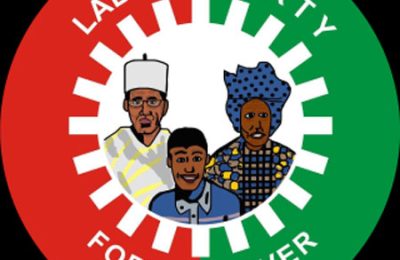IN the name of Allah, Most Gracious, Most Merciful.
God Almighty allegorically admonishes in Qur’an 3:10-18), “Those who reject faith neither their possessions nor their (numerous) progeny will avail them aught against God: they are themselves but fuel for the fire. (Their plight will be) no better than that of the people of Pharaoh and their predecessors: they denied Our Signs and God called them to account for their sins. For God is strict in punishment. Say to those who reject faith: ‘Soon will ye be vanquished and gathered together to hell an evil bed indeed (to lie on). There has already been for you a Sign in the two armies that met (in combat): one was fighting in the cause of God, the other resisting God; these saw with their own eyes twice their number. But God doth support with His aid whom He pleaseth. In this is a warning for such as have eyes to see’. Fair in the eyes of men is the love of things they covet: women and sons; heaped-up hoards of gold and silver; horses branded (for blood and excellence); and (wealth of) cattle and well-tilled land. Such are the possessions of this world’s life; but in nearness to God is the best of the goals (to return to). Say: shall I give you glad tidings of things far better than those? For the righteous are gardens in nearness to their Lord with rivers flowing beneath; therein is their eternal home; with companions pure (and holy) and the good pleasure of God. For in God’s sight are (all) His servants. (Namely) those who say: ‘Our Lord! We have indeed believed: forgive us then our sins and save us from the agony of the fire’. Those who show patience firmness and self-control; who are true (in word and deed); who worship devoutly; who spend (in the way of God); and who pray for forgiveness in the early hours of the morning. There is no god but He: that is the witness of God His angels and those endued with knowledge standing firm on justice. There is no god but He the Exalted in Power the Wise”.
Ramadan fast has lots of blessings for the Muslim faithful physically, spiritually and psychologically. More so, the 29 or 30 days of compulsory fast in the month of Ramadan is not meant for hardship for the believers. God says in Qur’an 2: 185: “Ramadan is the (month) in which was sent down the Qur’an as a guide to mankind also clear (Signs) for guidance and judgment (between right and wrong).

“So, every one of you who is present (at his home) during that month should spend it in fasting but if anyone is ill or on a journey, the prescribed period (should be made up) by days later. God intends every facility God intends every facility for you He does not want to put you to difficulties. (He wants you) to complete the prescribed period and to glorify Him in that He has guided you; and perchance ye shall be grateful”.
The fasting is intended to instill self-discipline, self-control, empathy and compassion in the individual during Ramadan fast. The Muslims are motivated to increase their generosity during the month of Ramadan. God says in Qur’an 2:183, “O ye who believe! Fasting is prescribed to you as it was prescribed to those before you that ye may (learn) self-restraint”.
Thus, we are encouraged to share the blessings that God has provided us to share by giving generously in charity because wealth is regarded as a trust from God Almighty, Who is the Rich (Al-Ghaniy); the Provider (Ar-Razaq); the Bestower (Al-Wahab); the Enricher (Al-Mughnee); and the Opener (Al-Fattah).
Besides, the pangs of hunger and thirst in Ramadan fast make us appreciate the bounties of God Almighty. This leads us to feel the desperation of hunger, and leads us to empathise with the poor and needy, who don’t know when the next meal will be available. Today, the level of hunger and poverty in the world is increasing at a frightening rate.

The Action Against World Hunger (2021) says over 690 million people in 195 countries of the globe go to sleep in hunger daily, affecting 8.9 percent of over seven billion global population. The United Nations estimates that 122 million of 144 million stunted children live in countries affected by conflicts, wars and hostilities. And an estimated 14 million under the age of five worldwide suffer from severe acute malnutrition, also known as severe wasting. Yet, only 25 percent of severely malnourished children have access to lifesaving treatment.
Indeed, world leaders, in 2015, charted a new set of Sustainable Development Goals (SDGs), part of which was to “end hunger, achieve food security and improved nutrition and promote sustainable agriculture” by 2030. But Ramadan fast comes annually to remind us of the need to be compassionate with people in poverty through gifts and donations.
An authentic Hadith of Prophet Muhammad (SAW) says: Zaid ibn Khalid Juhni related that the Prophet said: “He who provides for the breaking of the Siyam of another person earns the same merit as the one who was observing Siyam without diminishing in any way the reward of the latter (Tirmidhi).
Also, Ramadan fast has come to remind us of the importance to appreciate what we have and limit wastes. God continually provides for us from His favours, and fasting reinforces the concept that wasting the Creator’s bounties is a sign of ingratitude to Him. God advises Muslims to avoid waste – “Eat and drink but waste not by excess, for Allah loves not those who waste” (Qur’an, 7:31).
The Prophet (pbuh) encouraged people to avoid leaving leftovers, saying, “You do not know which part of your food carries the blessings.” The Prophet Muhammad (SAW) admonisheed further on moderation in eating: “A Muslim should eat and drink in moderation, reserving “one third [of the stomach] for his food, one third for his drink and one third for his breath.” (Hadith, Tirmidhi)
Thus, Ramadan allows you to exercise more control over your meals, which can help you regulate your diet and reduce your grocery bills. The Prophet (pbuh) also advised us to share, saying: “Food for two suffices three, and food for three suffices four.”
Furthermore, eat less meat this Ramadan: you will appreciate it more, it will help you to empathise with those who cannot afford meal, while practising the Islamic value of moderation: “Eat of the good things We have provided for your sustenance, but commit no excess therein,” (Qur’an, 20: 81).
Ramadan fast also builds endurance for the Muslims. As the lunar year continually shifts globally, Muslims encounter Ramadan in varying seasons. It rotates in different seasons of springs, summer, fall, and winter; or as the case may be, the seasons of rain, dry, and harmattan in the tropics. So, we have the benefits of gaining each season round a period of time with the lunar calendar.
Despite the fact that Ramadan fast doesn’t disturb the normal routines of work and home, Muslims make extra time for spiritual nourishment and self-introspection. The commitments ranging from the recitation and study of the Holy Qur’an to increase in charity and nightly performance of additional prayers (tarawih and qiyamu layl) are common to make us reap the rewards of the fasting month.
Upon all, Ramadan fast improves our health conditions to reduce weight, service our body system from overeating and drinking, and make us very healthy. And the Ramadan fasting month improves the ties, love, bond, and togetherness in the family as we eat the sahoor (early meal) and iftar (breaking fast) together, as the season overcomes eating separately in other months.
Anas related that Rasulullah said: “Take the suhoor meal, for there is blessing in it (Bukhari, Muslim)”. And on the breaking of fast (iftar), Salman ibn Amir Dhabi related that the Prophet said: “Break your fast with dates, or else with water, for it is pure” (Abu Dawud, Tirmidhi).
May Almighty Allah accept our acts of worship (‘ibadah) in Ramadan. Ameen. The Prophet says: Abu Huraira related that the Prophet said: Allah the Majestic and Exalted said: “Every deed of man will receive ten to 700 times reward, except Siyam (fasting), for it is for Me and I shall reward it (as I like). There are two occasions of joy for one who fasts: one, when he breaks the fast and the other, when he will meet his Lord” (Muslim). Abu Huraira related that Rasulullah said: “Many people who fast get nothing from their fast except hunger and thirst, and many people who pray at night get nothing from it except wakefulness (Darimi).







